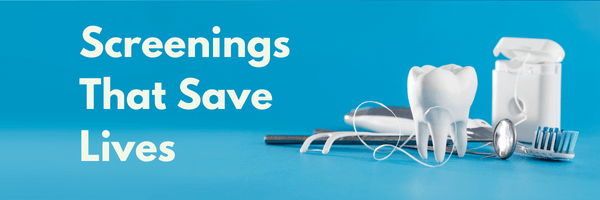
Ghosting Hurts Everyone & Our Industry
Posted March 07, 2024
It’s a challenging time for dental practices looking to fill clinical team member positions on their teams. An already-tight labor pool, coupled with fewer graduate candidates, makes for an unprecedented dental job market. Dental practices are struggling.
Never before has our industry needed to come together to support one another and do our part to be a part of the solution, instead of adding to the challenges. Candidates ghosting employers in the hiring process, at an already extremely stressful time, is one of those challenges.
What can we individually and collectively do to help?
By simply being communicative, responsive, and courteous, we can do our part to help dental hiring managers and practices save time, stress, and money.
It goes without saying (or it should anyway) that ghosting in all its various forms is a big no-no for both job seekers and employers. Not only does it result in lost time (and money) from missed production, but it exacerbates an already stressed-out dental team and hiring manager.
What is ghosting, and what classifies an event or activity as such?
Dental Job candidates ghosting employers
In the worst case, ghosting, as a job candidate, can mean accepting a position and then not showing up for work on your first day. Or being hired and then having second thoughts and never coming back without offering any communication or explanation. Less egregious, but still very unprofessional and problematic, is a candidate accepting an interview and then not showing up.
Things happen and plans can change at the last minute, but it’s extremely important to communicate with the practice when that happens. Let the interviewer or manager know as soon as possible if you need to cancel. And keep in mind, the further into the process you are, the more damage it does.
The dental community is small, connected, and hiring managers make notations on candidates. Don’t contribute to stress or burn a bridge when you don’t have to.
What jobseekers should do instead…
If your plans change and you need to reschedule, do it. Sometimes your outlook changes and you don’t want to go through with the interview, communicate it with as much notice as possible.
Yes, you might be thinking, “Awk-ward!” and you don’t believe you have the guts for a tough conversation like that. Focus on making it quick. A short, timely email or phone call is better than potentially ruining your reputation. Here are some examples:
- “Thank you for your time, but I have to pass on this opportunity.”
- “I wanted to let you know I’ve decided to go in a different direction.”
- “I’ve accepted another offer with a higher salary or better benefits.”
What is not ghosting?
- Not responding to an employer who reaches out to you first. That’s not ghosting, since you didn’t engage with the person. While it’s okay not to respond to a potential dental employer, consider that you could be missing out on an important networking opportunity to expand your connections in dentistry. Even if you aren’t actively looking or interested in the position, you can always give a polite response to say, “Thanks for reaching out, but I’m not currently looking for a new dental practice. Best of luck in your search!”
- Changing your mind after initially expressing interest, if you let them know. To reiterate, that’s the key to keeping your interview process as professional as possible: letting them know.
When It Feels Like a dental employer is ghosting you
Given the high demand for dental clinicians, including dental hygienists and dental assistants right now, fewer candidates are finding themselves on the receiving end of being ghosted. If an employer is in a larger metropolitan area, however, they could have received hundreds of applications, which can take time to screen and process. What can you do when you’ve identified the practice as one of your top employer prospects? There are strategic and professional ways to follow up on the opportunity.
Be Patient & Proactive
If you’ve already interviewed, don’t forget to send a handwritten thank-you note (preferably within 24 hours of the interview). Haven’t heard anything in a week? Follow up with an email. Instead of sending a “Hey, what’s going on?” email, consider sending a “value-added” email. That means, in addition to checking in, include something you’ve read recently that is directly related to dentistry, and maybe include a link. This will show you are serious about both the industry and this job in particular. It shows you’re engaged and proactive.
Be Polite, Yet Persistent
If it’s two weeks later and you still haven’t heard anything, send another touch-base email. By now, they’ve likely interviewed a number of people for the job. Try to remember something unique you talked about during your interview and mention that in the follow-up. (It’s a good idea to take notes after interviews to help you remember key topics.) That’ll remind the interviewer which candidate you are and keep you top-of-mind.
Always keep your follow-ups polite. After all, the manager could still be in the decision-making process. If you come off as annoyed or if you piggy-back all your emails off the first one you sent (somewhat obnoxiously highlighting that they haven’t answered your previous notes), the manager will likely take offense. She may ask herself, “How would this employee treat a patient who was unavoidably five minutes late? Would he or she be gracious, or take an aggravated tone with them?” Your professionalism – or lack thereof – will be remembered. It’s okay to reach out a final time to try and confirm the role has been filled. If you don’t get a response, move on.
Why Dental employers ghost candidates
It’s never okay for an employer to not respond to a candidate they have engaged with during the hiring process, leaving them hanging. Yet, it does happen and is frustrating for job seekers who’ve invested time and energy in preparing a resume and applying for jobs. It’s especially frustrating for employed job seekers who finagled their schedule for an interview so as not to tip off their current employer that they’re looking for another job.
Employers should always respond to applicants they have engaged in the hiring process. But when they don’t, it shouldn’t be taken personally. It may have nothing to do with you. Here are some reasons why it happens:
- They received too many applications and are having to screen and process many candidates.
- You didn’t follow instructions when applying. Maybe you left out a requested cover letter or references.
- You aren’t qualified or you submitted an application with errors and typos.
- The practice has had unexpected budget changes and is putting the position on hold.
- They hired someone either internally or externally and haven’t communicated.
- It’s a disorganized company with a poor workplace culture.
Ghosting is tainting the hiring process, not just in dentistry, but all industries. To help curtail this unprofessional practice, DentalPost has an update feature allowing employers to note candidates who are no-shows to interviews and provide no communication around their cancelation. This notation reflects in a candidate’s ranking in future employer search queries.
We need to treat each other with respect and professionalism always, but even more so in challenging times like these.
We connect and educate more than 900,000 job seekers in the U.S. and Canada to build better places to work through teams that excel.




.png)



.png)
